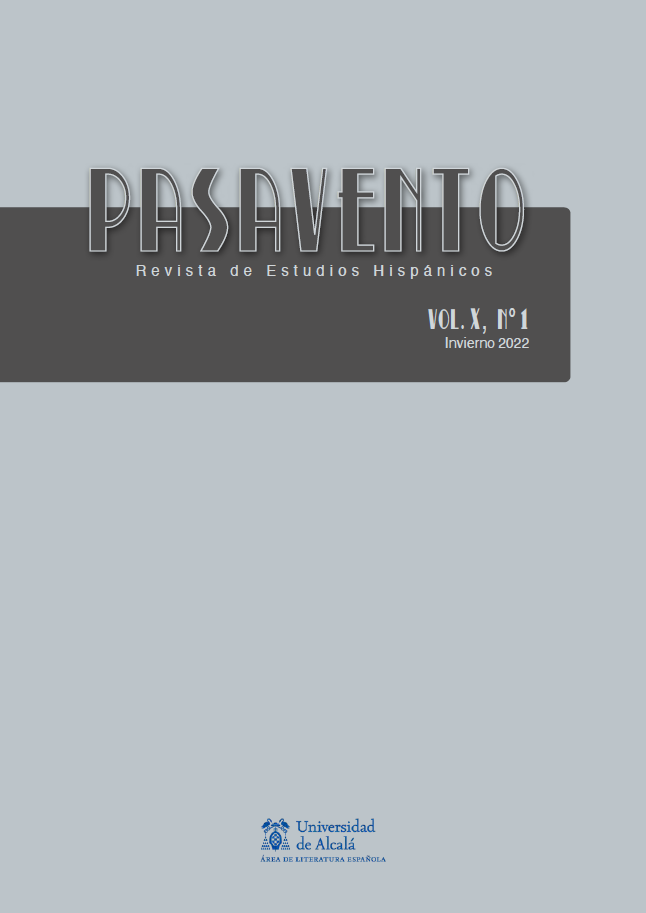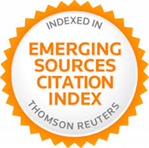Herocity and Exclusion in Contemporary Fantasy
The Case of Marina Tena's "Brujas de Arena"
DOI:
https://doi.org/10.37536/preh.2022.10.1.1453Keywords:
Fantasy, Climate fiction, Exclusion, Pariah, DefectorAbstract
This paper explores the treatment of figures marked by exclusion and liminality in contemporary fantasy, focusing on Marina Tena’s novel Brujas de arena (2021). Using an original textual hybridity, which mixes features of classical fantasy with notes of the so-called climatic fictions, the novel articulates its plot around two figures marked by exclusion (pariahs) that uproot them from any community –both of origin and of possible arrival–; this experience turns them into beings between two worlds (defectors). This allows us to reflect on the mechanisms of oppression of the communities and the possibilities of resistance to it.
References
Agamben, Giorgio (1999). Homo Sacer: el poder soberano y la nuda vida. Valencia: Pre-textos.
Attebery, Brian (1992). Strategies of Fantasy. Bloomington e Indianapolis: Indiana University Press.
Botting, Fred (2012). “In Gothic Darkly: Heterotopia, History, Culture”, in A New Companion to the Gothic, ed. David Punter. Hoboken, NJ: Willey-Blackwell. DOI: <https://doi.org/10.1002/9781444354959.ch1>.
Clute, John y John Grant (eds.) (2012). The Encyclopedia of Fantasy, <https://sfencyclopedia.wordpress.com/2012/11/25/the—encyclopedia—of—fantasy/> (31 de agosto de 2021).
Creed, Barbara (1993). The Monstrous-Feminine: Film, Feminism, Psychoanalysis. Londres: Routledge.
Csicsery-Ronay, Jr., Istvan (2003). “Lucid Dreams, or Flightless Birds on Rooftops?”, Science Fiction Studies, 30.2: 288-304.
Federici, Silvia (2014). Calibán y la bruja. Mujeres, cuerpo y acumulación originaria. Madrid: Traficantes de sueños.
Flisek, Agnieszka y Katarzyna Moszczyńska-Dürst (2020). “Romance de la Negra Rubia de Gabriela Cabezón Cámara: entre la autobiografía tránsfuga y el autorretrato de un sujeto cínico”, Itinerarios: revista de estudios lingüísticos, literarios, históricos y antropológicos, 32: 41-58. DOI: <https://doi.org/10.7311/ITINERARIOS.32.2020.03>.
Gregori, Alfons (2020). “‘Senserostre és el malnom’: los parias en la narrativa breve no mimética española y catalana del s. XXI”, Itinerarios: revista de estudios lingüísticos, literarios, históricos y antropológicos, 32: 99-112. DOI: <https://doi.org/10.7311/ITINERARIOS.32.2020.06>.
Hutton, Ronald (2017). The Witch: A History of Fear, from Ancient Times to the Present. New Haven y Londres: Yale University Press. DOI: <https://doi.org/10.2307/j.ctv1bzfpmr>.
Kelso, Sylvia (2010). “Out Of Egypt: histories of speculative fiction and Carole Mcdonnell’s ‘Wind Follower’”, Extrapolation, 51.1: 82-98. DOI: <https://doi.org/10.3828/extr.2010.51.1.6>.
Jackson, Rosemary (1981). Fantasy: The Literature of Subversion. Londres: Routledge.
López-Pellisa, Teresa (2019). “Alucinadas I y II: el retorno de Metis y las escritoras españolas de ciencia ficción”, Hélice, 5.2: 75-96.
Marín, Marta (2019). “Distopías climáticas en el cine contemporáneo: Ecofeminismo para salvar el mundo en Mad Max: Furia en la carretera”, Saitabi, 69: 227-246. DOI: <https://doi.org/10.7203/saitabi.69.15949>.
Mendlesohn, Farah (2013). “Peake and the Fuzzy Set of Fantasy: Some Informal Thoughts”, in Miracle Enough: Papers on the Works of Mervyn Peake, ed. G. Peter Winnington. Cambridge: Cambridge Scholars Publishing, 61-74.
Moreno Serrano, Fernando Ángel (2010). Teoría de la literatura de ciencia ficción: Poética y retórica de lo prospectivo. Vitoria: Portal.
Sánchez Trigos, Rubén, Isabel Clúa y Fernando Ángel Moreno Serrano (2020). “La literatura proyectiva española desde las crisis: una visión de conjunto”, Quimera: revista de literatura, 439-440: 20-25.
Spivack, Charlotte (1987). Merlin’s Daughter. Contemporary Women Writers of Fantasy. Nueva York: Greenwood Press.
Staël, Madame de (1796). De l’influence des passions sur le bonheur des individus et des nations. Lausana: Jean Mourer/Hignou et Comp.
Straehle, Edgar (2017). “De parques, plazas y oasis: una exploración de los espacios políticos en Hannah Arendt”, Las Torres de Lucca: revista internacional de filosofía política, 6.10: 21-49.
Suvin, Darko (1984). Metamorfosis de la ciencia ficción. Sobre la poética y la historia de un género literario [1979]. México: Fondo de Cultura Económico.
Varikas, Eleni (1995). “Paria: una metáfora de la exclusión femenina”, Política y Cultura, 4: 81-89.
Varikas, Eleni (2011). “Los desechados del mundo. Imágenes del paria”, Andamios, 8, 16: 123-136. DOI: <https://doi.org/10.29092/uacm.v8i16.467>.
Williams, Raymond (1983). Keywords. A Vocabulary of Culture and Society. Oxford: Oxford University Press.
Downloads
Published
How to Cite
Issue
Section
License
Copyright (c) 2022 Pasavento. Revista de Estudios Hispánicos

This work is licensed under a Creative Commons Attribution 4.0 International License.








